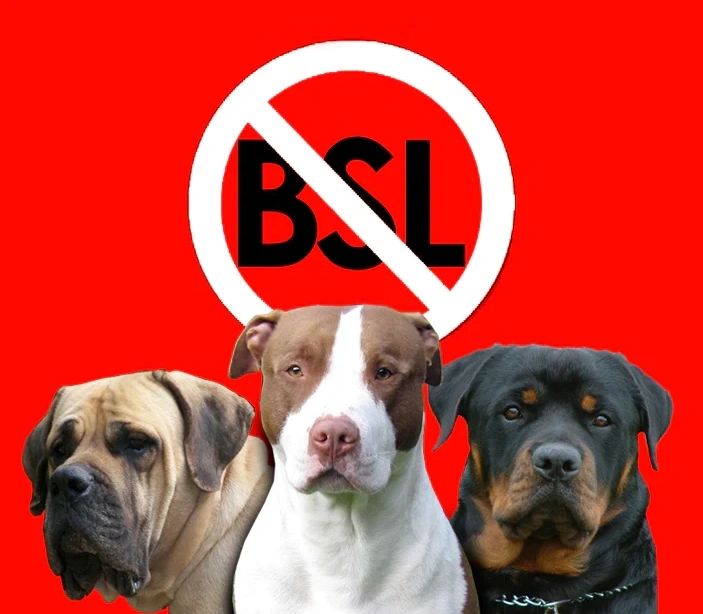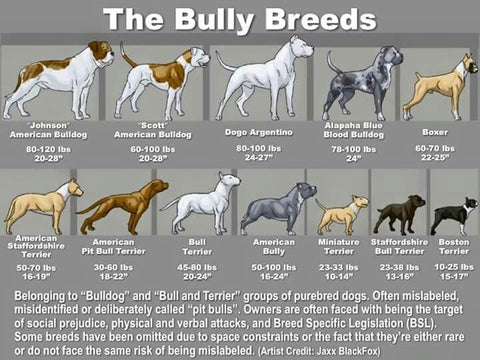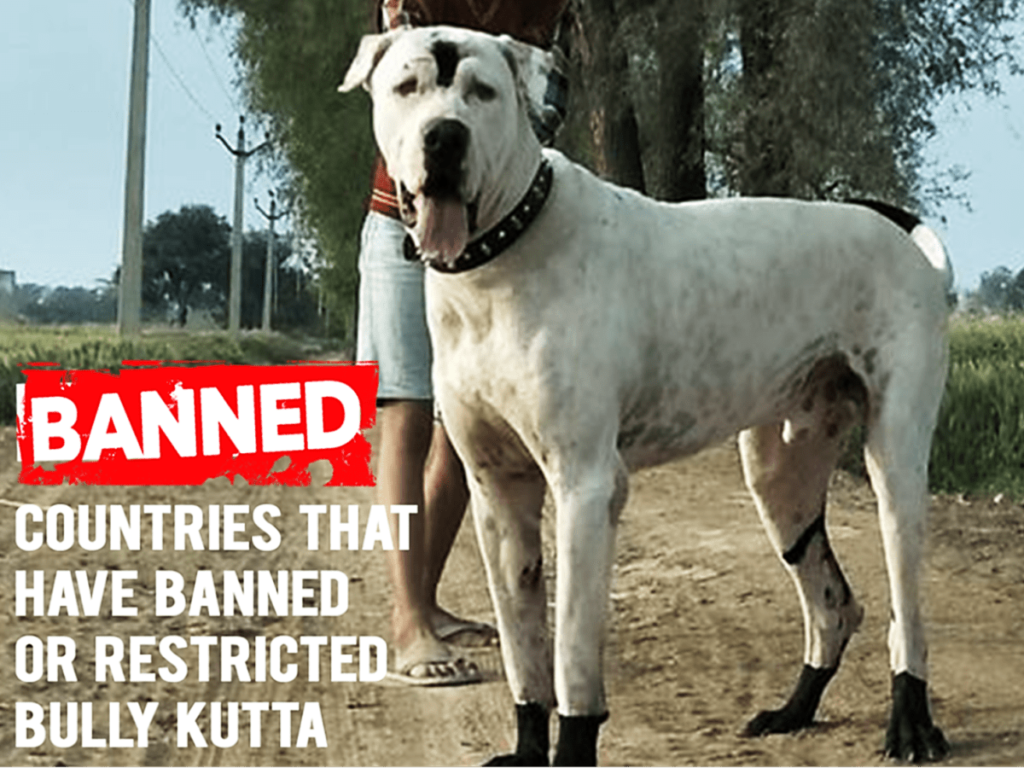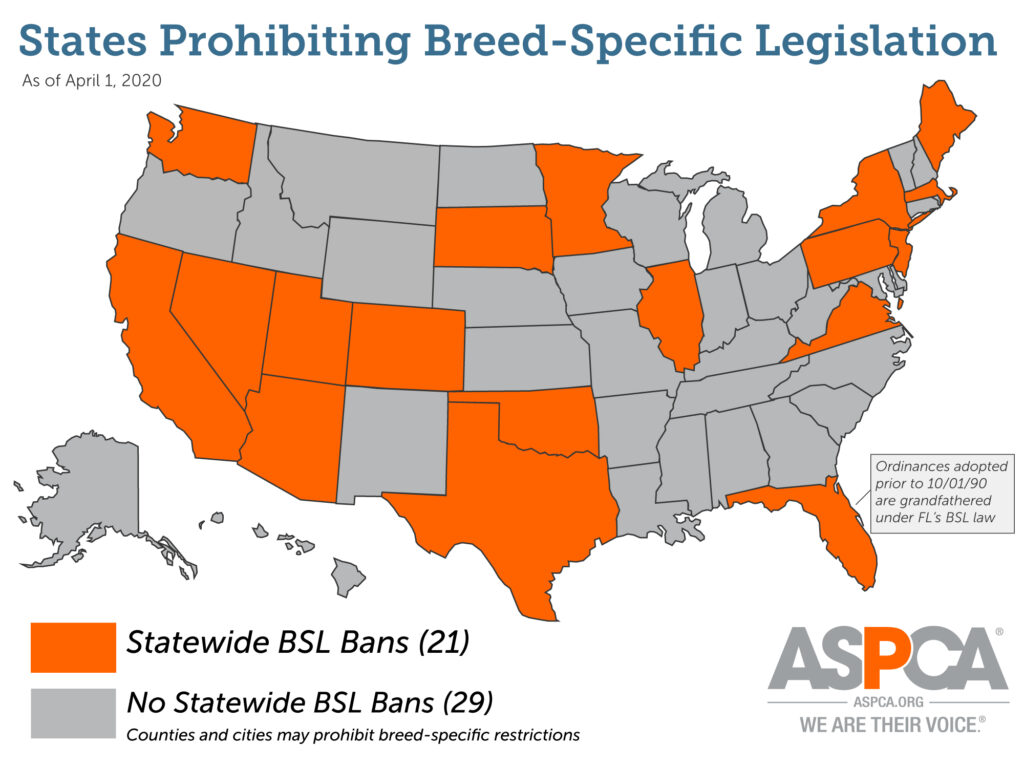
banned dogs in usa Navigating the maze of breed-specific legislation (BSL) in the United States can be challenging. These laws, which vary widely by state and locality, focus on certain dog breeds in the name of public safety. This issue often sparks strong emotions among pet owners who worry about how such laws could impact their beloved pets.
Our guide is designed to clarify BSL, offering a comprehensive look at how and where these laws are enforced. We’ll cover the basics of breed-specific legislation, highlight states with active laws, and explore regions advocating for more inclusive approaches. This information aims to provide the clarity needed for responsible pet ownership amidst these complex regulations.

What Is Breed Specific Legislation?
banned dogs in usa Breed-specific legislation (BSL) involves laws that restrict or ban the ownership of certain dog breeds perceived as higher risks for aggression or danger. Commonly targeted breeds include:
- Pit Bull
- Bullmastiff
- American Staffordshire Terrier
- Belgian Malinois
- Dogo Argentino
- Doberman Pinscher
- Cane Corso
- German Shepherd
- Rottweiler
- Alaskan Malamute
- Siberian Husky
- Presa Canario
- Bull Terrier
- Staffordshire Bull Terrier
- Wolf Hybrids
- American Bulldog
- Akita
- Chow Chow
These breeds often face restrictions or bans due to concerns about their temperament and physical abilities.
BSL emerged in the early 1980s in response to several fatal dog attacks. The intention behind these laws is to improve public safety, but their effectiveness and fairness continue to be debated.

Key BSL Terms
When discussing breed-specific legislation (BSL), it’s important to understand a few key terms:
- BSL (Breed Specific Legislation): Laws that impose restrictions or bans on certain dog breeds.
- BDL (Breed Discriminatory Legislation): Another term for BSL, highlighting its discriminatory nature.
- APBT (American Pit Bull Terrier): A breed often targeted by BSL.
- HB (House Bill)/SB (Senate Bill): Proposed legislation in the lower or upper houses of a legislative body.
- Grandfather Clause: Allows existing local laws to remain in effect even if new state-level BSL is introduced.
- Home Rule Exception: Permits municipalities to create their own regulations despite state-level legislation.
Understanding these terms helps pet owners navigate the legal complexities of BSL and advocate for fair animal control policies.

Bans vs. Restrictions
banned dogs in usa Breed-specific legislation (BSL) can take the form of outright bans or specific restrictions designed to manage perceived risks. Common restrictions under BSL include:
- Muzzling the dog while in public
- Spaying or neutering the dog
- Housing the dog in a specified kennel with features like concrete floors and chain-link walls
- Keeping the dog on a leash of a certain length
- Obtaining liability insurance of a specified amount
- Displaying “vicious dog” signs at the residence
- Requiring the dog to wear a “vicious dog” tag or other identifying marker
These measures aim to enhance public safety while allowing pet owners to keep their dogs under controlled conditions.

States With BSL or No Prohibiting Legislation
banned dogs in usa Breed-specific legislation (BSL) is in effect in several states, either through specific laws or because there are no state regulations preventing local municipalities from creating their own breed-specific rules. Here’s a snapshot of where BSL exists or is allowed due to the absence of prohibitory legislation:
- Washington
- Idaho
- Wyoming
- North Dakota
- New Mexico
- Nebraska
- Kansas
- Iowa
- Missouri
- Arkansas
- Louisiana
- Wisconsin
- Michigan
- Indiana
- Ohio
- West Virginia
- Kentucky
- Tennessee
- South Carolina
- Alabama
- Mississippi
- District of Columbia
These regions either enforce BSL directly or permit local governments to establish their own breed-specific regulations.
States Without Active Breed-Specific Legislation
banned dogs in usa In contrast, several states have chosen to oppose breed-specific legislation (BSL) by implementing laws that apply uniformly to all dog breeds. Here’s a current list of these states:
- Alaska
- Hawaii
- Nevada
- Utah
- South Dakota
- Oklahoma
- Pennsylvania
- Connecticut
- Rhode Island
- Massachusetts
- New Hampshire
- Maine
- Delaware
These states have opted for regulations that do not discriminate based on breed, promoting a more inclusive approach to dog ownership.
Exception Cases
The situation with breed-specific legislation (BSL) can be particularly complex in states that generally oppose such laws but allow for exceptions. These exceptions might include grandfathered ordinances or specific conditions permitting local governments to implement their own breed-specific rules. Here’s a list of states where such exceptional circumstances apply:
- Oregon
- California
- Arizona
- Montana
- Colorado
- Texas
- Minnesota
- Illinois
- Georgia
- Florida
- North Carolina
- Virginia
- New Jersey
- New York
- Vermont
- Maryland
In these states, BSL regulations can be intricate, with state-level prohibitions existing alongside local exceptions. This complexity underscores the importance of understanding both state laws and local ordinances.
What’s Next in Navigating Breed-Specific Legislation?
For the most current information on breed-specific legislation (BSL), we recommend checking the BSL Census. This resource is regularly updated with the latest news and notifications, including changes, repeals, and the implementation of new breed-specific laws.

